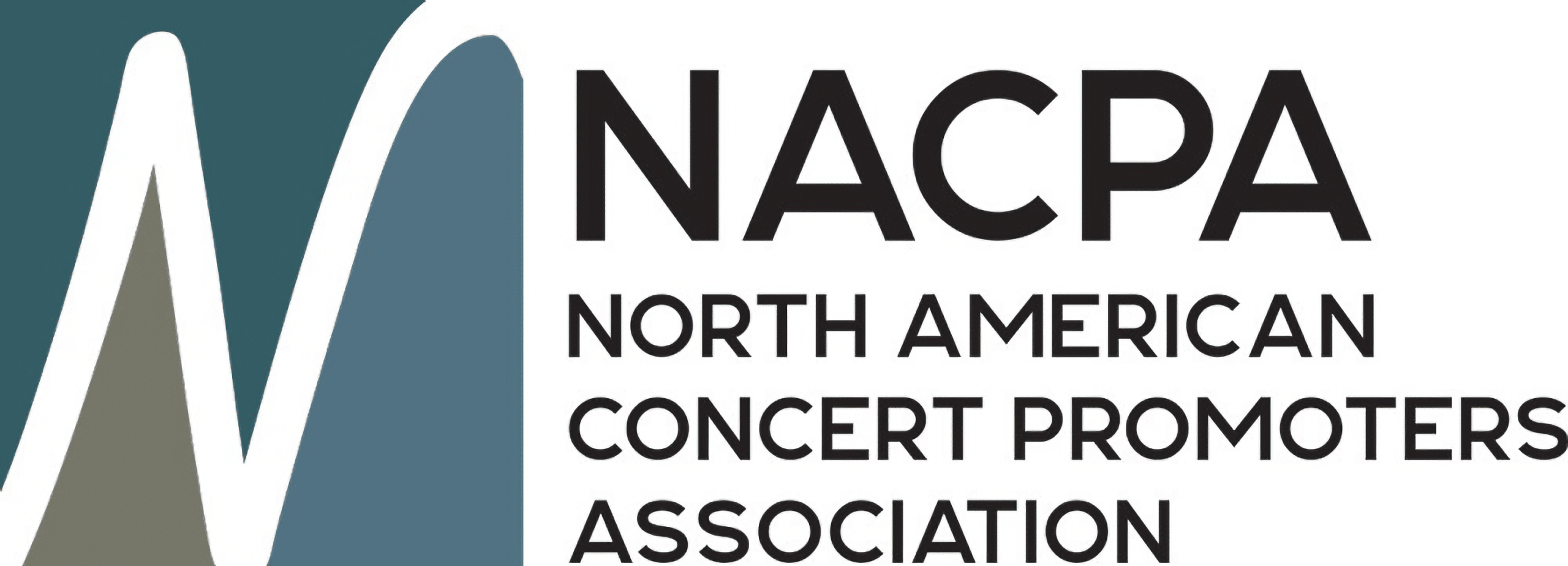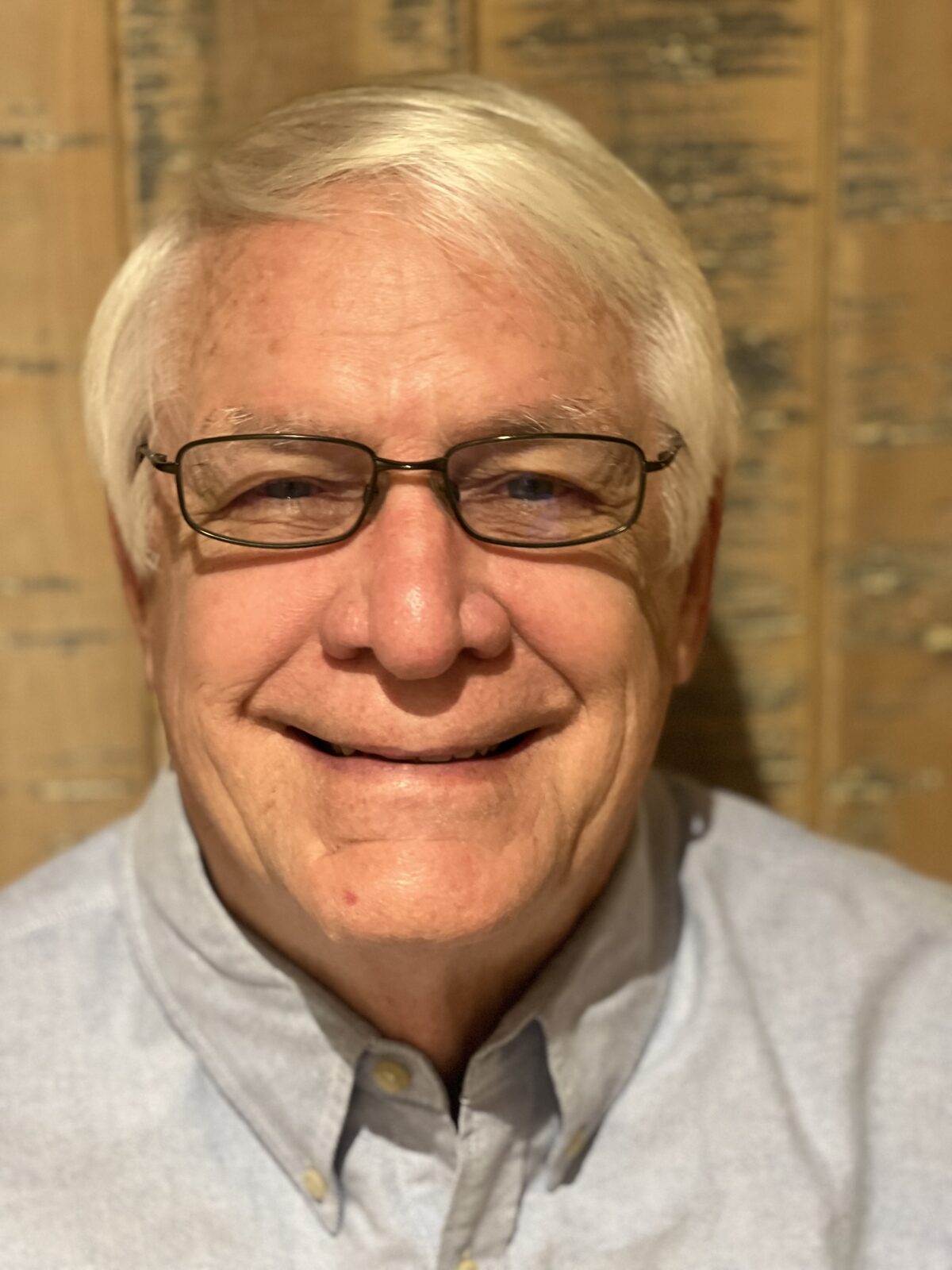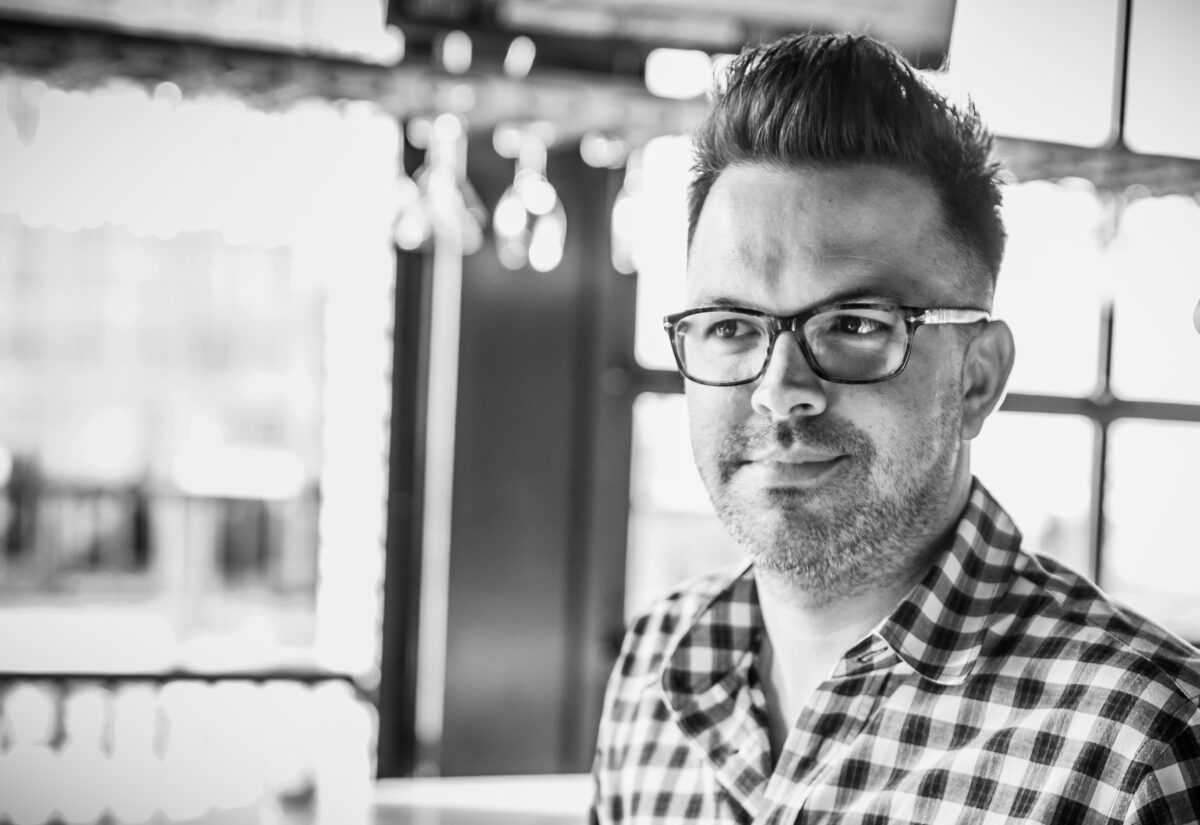Pam Matthews, IEBA’s Executive Director, announced her retirement in November, stepping down on March 1 after over 45 years in the music industry. She leaves behind a legacy of innovation, education, and community-building. As she completes a legendary career, NACPA asked if she would share a few enjoyable moments from an impactful business life.
Matthews began her career as a teenager, working as a runner for Mid-South Concerts in Memphis and in the box office at Mid-South Coliseum. Her career trajectory includes significant roles such as the General Manager of Nashville’s Ryman Auditorium. During her tenure at the Ryman, the historic venue to become one of the top-grossing theaters in the world. Under her management, the Ryman achieved National Historic Landmark status and received accolades like Pollstar’s Theatre of the Year and the Academy of Country Music’s Venue of the Year.
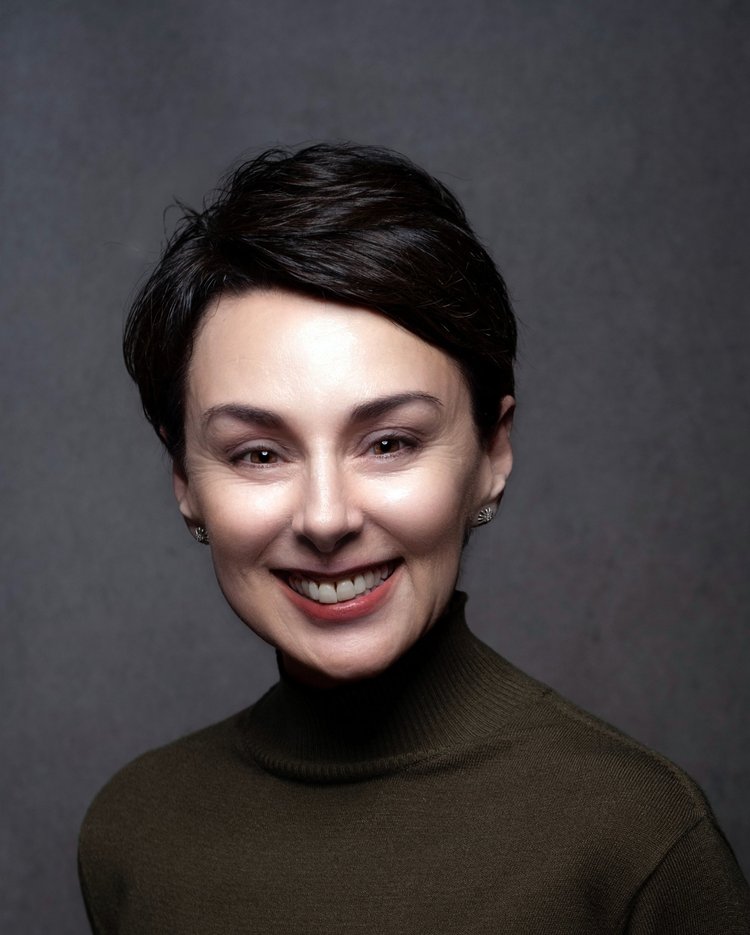
In 1988, Matthews joined The Judds’ management team in a dual role: to supervise all graphic design & print advertising and also oversee tour accounting. She served her last years with the duo as Vice President/Treasurer of Naomi & Wynonna’s three corporations. Her tenure with the musical icons includes five Grammy wins, their 1991 farewell tour, the launch of Wynonna’s solo career, and their 1999/2000 reunion tour.
In 2013, Pam Matthews was appointed Executive Director of IEBA. During her time at IEBA, she significantly expanded the organization’s influence, more than tripling its membership and transforming the annual conference into a pivotal event for networking and professional development in the live entertainment industry. Her leadership was marked by the establishment of IEBA’s Educational Outreach Fund in 2017, which has since provided scholarships worth over $1.6M to students aiming for careers in entertainment.
Commonly included on top industry executive lists, Matthews is the recipient of multiple accolades from all major industry publications including Billboard and Pollstar. She is a frequent speaker at conferences and on university campuses. IEBA’s immediate past chairman Eric Bresler describes her as a “transformative leader” who navigated the organization through significant growth. Her dedication and impact on the industry have been widely acknowledged, setting a high standard for trade organizations in the live entertainment sector.
You’ve just announced your retirement a few months after a successful IEBA.
It was a great year to go out on, right? Red Rocks and Louis went into IEBA’s Hall of Fame. Louis did a keynote. He was like, “How can we make this not boring?” And I was like, “Well, you have some really articulate artists and you guys have great stories. And you have a couple artists who really understand the business too.” That’s all I had to say. He said, “On it” and got Eric Church to interview him. It was so fun. We did this once before where I had Vince Gill interview a bunch of buyers. “Wait a minute,” Vince said. “You want me to interview Gil Cunningham?” I said, “Yes, yes I do.” He was into it. It doesn’t happen that often, but when artists interview industry people, it makes it super fun.
You’ve had an interesting life. Can you just basically just tell me maybe one or two really cool stories?
So when I first got into the business, it was in the days of regional promoters, and that was just really fun. It was the era of Bill Graham, Barry Fey, Irv Zuckerman at Contemporary, Steve Sybesma at Sunshine, Jon Stoll at Fantasma, and the Beckers & Louis at Pace. Everyone was playing with their own money and every single show mattered. I worked for Bob Kelley at Mid-South Concerts, who did all the shows in my hometown (Memphis). Here’s a fun story — Bob got talked into promoting a Sex Pistols date in ’78 – their one & only U.S. tour, which lasted like 12 days and only seven performances. One of them was in Memphis. The band wanted to play Tupelo, but there was no place to play there, so they chose Memphis. If Bob was going to confirm his next ZZ Top date, he would have to take the date on Sex Pistols. And it was as wild as you might imagine. I mean, I bet you don’t know too many people who did a Sex Pistols date, right?
And I had a front row seat to the birth of the shed. Starwood was the first. And the way that we picked the land, the way that we developed the land, and the way we did the 20-year land lease, all of that was not what concert promoters had done really before. And then we built Starplex in Dallas, we went to Atlanta, and then Star Lake, 25 miles from Pittsburgh. And that was a super fun time. We opened Starwood with computerized ticketing, which was a big deal in 1985. I had worked in hard tickets where you ordered a printed ticket for every seat in the arena from Weldon, Williams and Lick. All the tickets were shipped to the venue. You put these paper tickets in racks in the box office and then you pulled off the hard tickets you’d deliver to all the ticket outlets. Since I had worked in that, it was very fun to move to computerized ticketing. It was something new to learn. And because I was young, in my early 20s, it was great to be on the front end. You had building managers in their 50s who didn’t know anything about computers, and you had box offices managed by women in their 40s, 50s, 60s who did not know anything about computers. I mean, we had a really young staff at Starwood, and I think that’s one of the reasons it worked so well. And we were starting from scratch. So it’s not like we had to retrain, you know, 10 box office ladies who had been at the venue for 20+ years.
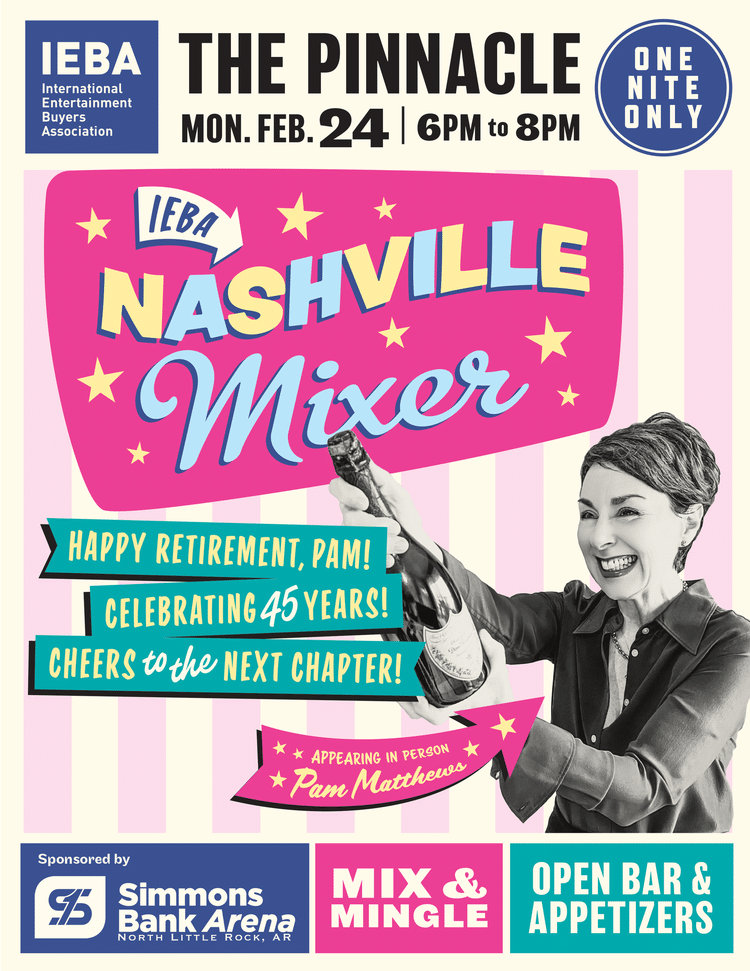
And at the amphitheater, we owned the popcorn and peanuts. I always think of getting those first Jimmy Buffett dates. He was like, “yeah, I’m going to need 110% of ticket sales as my guarantee.” To be on the cutting edge of something new and emerging was super exciting. And also working at a really large venue with 18,000 seats – by far the biggest building in Nashville – opened up so many possibilities. And then just being outdoors is extra fun.
And then when I think about the girls (The Judds), I really think how, again, cutting edge and business-forward they were. The Judds had almost everything in-house. Not the label, of course, but they had their own publishing, they owned their trucks and busses and had their own booking agent in house. We were promoting our own shows – we promoted 85% of our own dates. We were playing with our own money. The girls hired Steve Pritchard from the Jim Halsey Company to run Pro Tours (in-house booking agency and promoter). Then Steve Pritchard hired a fulltime staff of 6-7 people. I was one of them. Dale Morris did something similar with Alabama. It’s still unique and extraordinary. Female arena headliners. Female country arena headliners. There weren’t that many in the 80s. I’m also super proud of all the acts who opened for The Judds. We can start with Randy Travis and can go all the way to Garth Brooks. Alan Jackson. Vince Gill. So many superstars opened for The Judds.
Bouncing around, having been at the Ryman and at IEBA, what do you think your legacy will be?
The answer to that question is the same for both the Ryman and IEBA. It has to do with growth periods. When I took over the Ryman, they were doing bio-musicals like “Always, Patsy Cline” and only 18 to maybe 24 concerts a year, if you can imagine that! You have to remember at the Ryman was shuttered from 1974 – 1994. It was boarded up for 20 years. And then Steve Buchanan at Gaylord Entertainment led the team that renovated it. For the first few years that it was open again, the Opry was there four months in the winter, they did the bio musicals, bluegrass and gospel series, and some concerts. By the time I left, we were doing 200 to 220 shows a year. One of my last show was The Killers in April 2007. Actually, I think my very last show at the Ryman was Musiq Soulchild (July 2007).
That’s nuts
Just the fact. Just like the Ryman, everyone loves IEBA. By 2017, we were selling out at the conference at a capacity of 1,600. With the exception of the pandemic years, we’ve sold out at max capacity since. We literally turn people away. So we moved into bigger convention hotels, and we have more capacity. We’re still selling out. Now we have over 2,100 members. We also now have multiple events every year. We have super fun mixers in New York and LA and Nashville. So as opposed to this being a once-a-year organization, we now have events in multiple cities. So my legacy at both organizations is growth – really big growth years.
The other thing about IEBA is that we created the Educational Outreach Fund in 2017. We give away 30-50 scholarships every single year. And they start at $1,500 and go all the way up to $12,000 through a variety of programs. We have endowed scholarships at 11 different universities across the country. I think that’s another legacy — providing scholarship money to the next generation of industry leaders.
Was it difficult to find money? Or did it kind of come naturally?
It comes naturally. We have programs in place that generate money. For example, Jeff Roberts Agency will find an act on their roster to donate the proceeds from a particular event. For King & Country made big donations two years in a row. Zach Williams made a nice $50,000 donation in 2023. Maybe the money comes from a casino date – 98 Degrees made a $25,000 donation in 2019. We’ve had a number of acts do this.
We also have endowed scholarships that honor industry leaders like Mike Smardak, Rod Essig, George Moffett who founded Variety Attractions. And we have an endowed scholarship for Delaware State Fair. We do all the paperwork and administration.
I guess met plenty of performers in your time, especially at the Ryman. Is there anyone that kind of stands out either as a good person or easy to work with or just an actual mensch of a person?
Most artists, I think, are very nice. Brian McKnight helped me carry a case of bottled waters one time. Alan Jackson always let me skip in front of him in the catering line. David Byrne is surprisingly normal in real life. One of my favorite people who is super, super cool is Chrissie Hynde. Off stage, she’s just a cool girly girl. She likes to just plop down on the sofa and chat. She’s super girly and chatty. Pat Benatar is super girly and chatty off stage. Just likes to sit down for some girl talk. Joan Jett. Same.
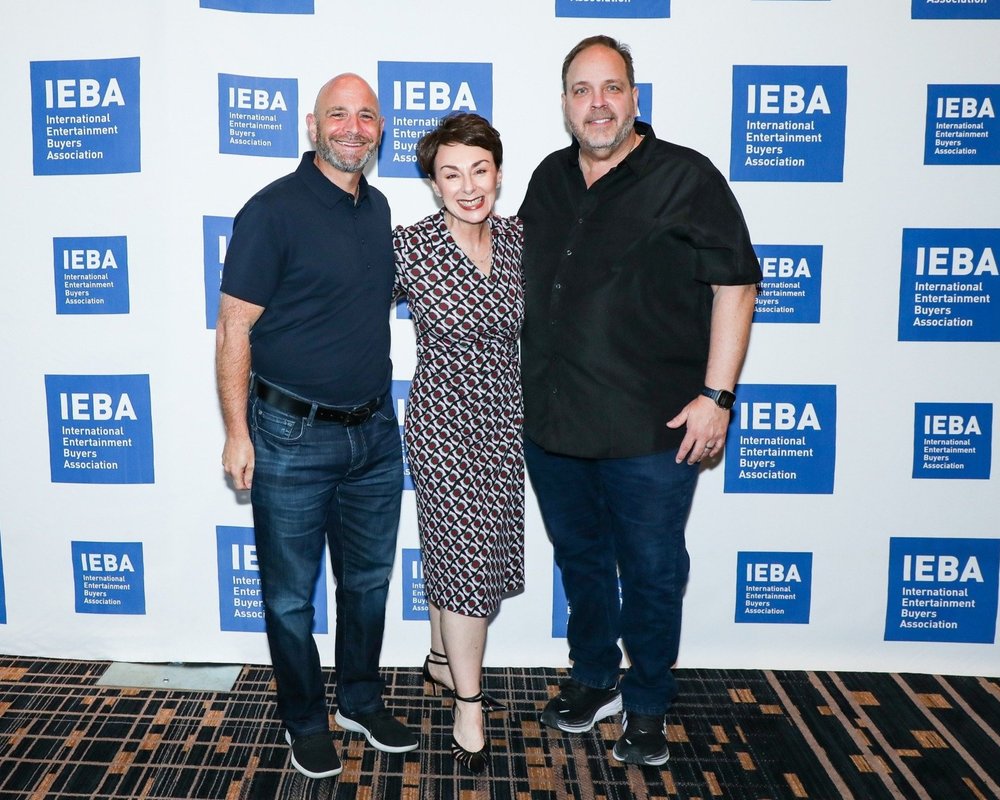
Pam snaps a photo with IEBA Immediate Past Chairman Eric Bresler and Barry Jeffrey, president of IEBA Educational Outreach Fund board.
I’ve always heard she’s a sweetheart.
She’s such a sweetheart. Joan Jett, Pat Benatar, Chrissie Hynde – sweethearts
Any jerks?
Sometimes, we encounter people when they’re not at their best. Maybe they’re in active alcoholism or addiction. I did not have good days with [one male artist] because he was a full-blown alcoholic. And all you can do is have compassion for someone who’s battling a disease. What else can you do when someone shows up for soundcheck with their face all busted up and in serious need of a shower? You just have to be sweet. Sometimes they can respond to your kindness and sometimes they can’t. So I would say most of the assholes that I’ve encountered were probably in the throes of addiction.
I’ll tell you who’s really nice and super smart. Garth Brooks is wicked smart.
I heard that Garth Brooks has like a photographic memory. Almost as if he can recognize a person who comes to two different meet & greets.
He’s got some sort of memory gift, yeah. It could be auditory or an audiovisual memory gift. He seems to remember conversations. But he’s also super gracious. He’s very kind and super loyal. What a work ethic – not just on time; he’s always early, ready to go, saying hell to security guards and thanking the catering ladies. But yeah, I think he’s got some kind of memory gift, and he uses it to his advantage. But he doesn’t overuse it; he doesn’t tip his hand. He’s never told anybody like publicly in an interview or anything. But he’s also a really fun guy. Super smart people sometimes aren’t fun because they’re just annoyed by normal people.
